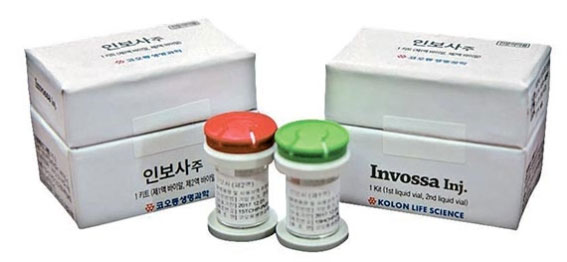With hospitals increasingly registering as a provider of gene therapies, Kolon Life Science’s Invossa, an allogenic cell and gene therapy for osteoarthritis, is likely to enjoy more prescriptions, an analyst said in a report Tuesday.
To provide gene therapies, a hospital must register with the Korea Centers for Disease Control and Prevention as an institution for treatment of gene therapies. Also, it should report to the Ministry of Health and Welfare about target diseases and treatments for gene therapies. If the hospital uses gene therapies approved to be sold in the market, the hospital should additionally submit a business plan detailing providers of the treatment, equipment, and facilities.

A rapid rise in the number of gene-therapy providing hospitals will push up Invossa therapies, said Shin Hyeon-jun, an analyst at Hanwha Investment & Securities.
“Before the launch of Invossa on Nov. 6, there were only 58 hospitals registered as a provider of gene therapies. But after the launch, the number went up to 282 as of Dec. 5,” Shin said. “If we consider Invossa is almost the only gene therapy which physicians can prescribe in Korea, the rising registrations of such hospitals will directly lead to a rise in Invossa treatments,” he said.
Shin added that the company is likely to meet its next year’s sales target of 5,000 doses without much difficulty.
According to Kolon Life Science, more than 100 Invossa treatments have been prescribed for patients to date.
Shin said such a fast rise in prescription numbers in less than a month after the market launch is a positive signal for the expansion of Invossa, which is more expensive than existing osteoarthritis prescription drugs, such as hyaluronic acid or painkillers.
The analyst also forecast that Invossa’s target market will expand further, as the two-year phase-3 local clinical trial from 2018 will aim to add an indication for patients with less severe osteoarthritis.
“If Invossa’s patients increase to include those with light symptoms after the completion of the clinical trial, its target market will more than double,” Shin said.

